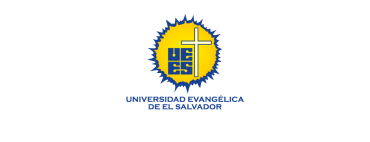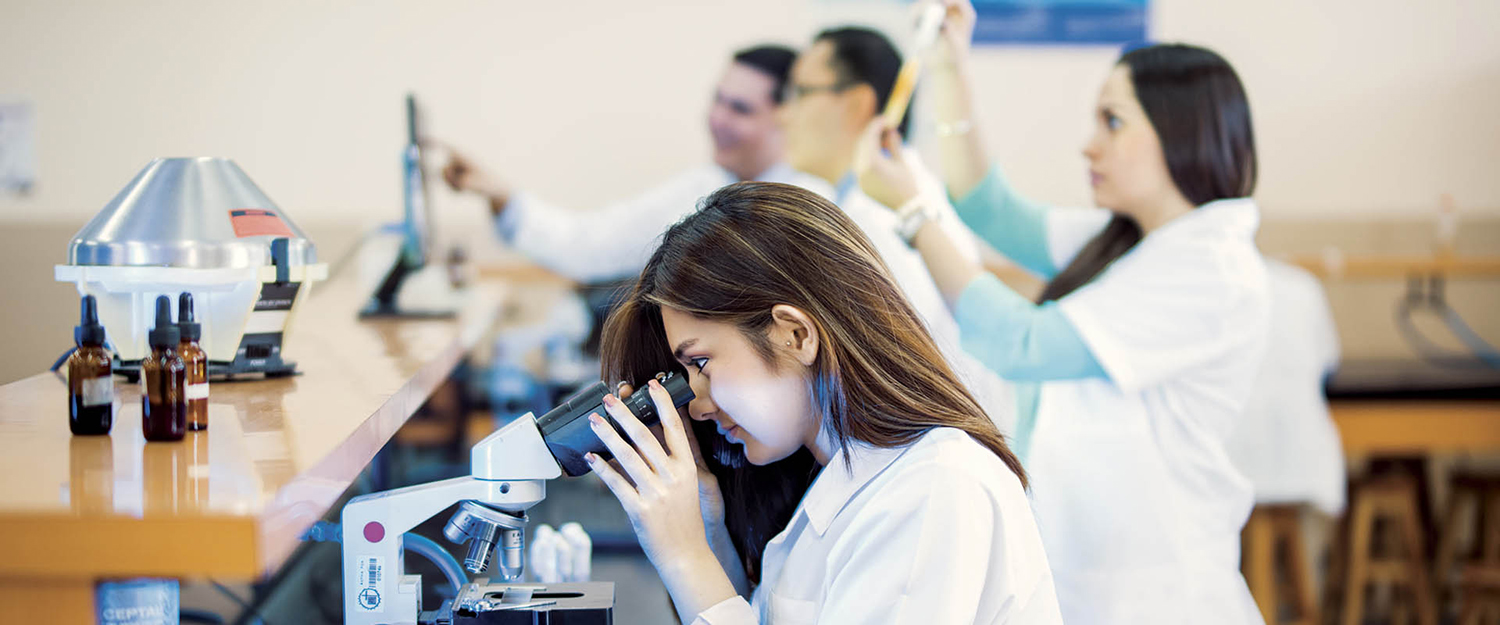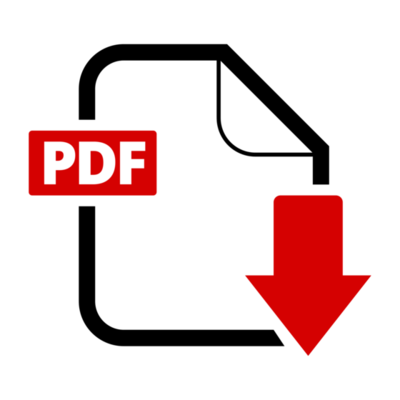Health and Society Research Center
The Health and Society Research Center , is attached to the Research Department-VRIPS (Spanish acronym) with the objective of producing scientific research that contributes to the solution of society's needs and problems. It is formed by the coordinator and high-level associated researchers. Research projects are convened once a year at a national and international level and are financed with UEES' own funds and cooperating agencies.
CALL FOR RESEARCH PROPOSALS 2024
FUNDED BY UEES THROUGH
THE HEALTH AND SOCIETY RESEARCH CENTER (CISS Spanish acronym)
The Center for Health and Society Research of the Evangelical University of El Salvador (CISS-UEES), aims to "contribute to the effective search for national needs and problems [...]" (CISS-UEES Regulation 2010, which means that such research should serve as tools for the objective evaluation of the Salvadoran reality, while becoming inputs for public decision making; proposing critical reflections on these problems. In this way contribute to the national scientific production, through the transfer of knowledge and scientific publication.
Among its purposes, the CISS establishes to develop research relevant to the problems and needs of the national context in tune with international issues of the Sustainable Development Goals (SDGs); a task that must be carried out with academic responsibility, methodological rigor and a Christian ethical framework by professionals with research competencies and experience.
Therefore, the Office of the Vice-Rector for Research and Social Service, through the Directorate of Research and the Center for Health and Society Research (CISS-UEES), invites national and international researchers and academic organizations, and public or private institutions to propose research projects to be funded or co-funded by UEES. Priority is given to multidisciplinary projects or those presented in partnership with other institutions.
Called Areas, Lines, and Topics of Research
The lines of research called for 2024 are Education, Mental Health, Health Promotion, Migration, Environment, Political Participation, Culture of Peace. Humanities and Social Sciences, among others that contribute to the Sustainable Development Goals (SDGs). Projects must show relevance and transcendence in the area and line where they are proposed.
| Area | Investigation Line | Agenda’s topics |
| 1. Education | 1.1 Vulnerable Population | 1.1.1 IInclusion and access to education for people with disabilities, forced displacement, etc. |
| 1.2 Educational Quality
|
1.2.1 Quality of the Education
1.2.2 UTime management in schools 1.2.3 Evidence of effectiveness of public policies in education |
|
| 2. Health | 2.1. Women, Childhood, and Adolescence | 2.1.1 Healthcare and services to vulnerable population |
| 2.2. Quality | 2.2.1Healthcare Quality
2.2.2 Evidence of effectiveness of public policies in healthcare |
|
| 3. Environment | 3.1. Women, Childhood, and Adolescence | 3.1.1 Vulnerable populations and use, access, conservation, and exploitation of natural resources |
| 3.2. Quality | 3.2.1 Evidence of effectiveness of public policies in the environment | |
| 4. Culture of Peace, political participation, and violence prevention | 4.1. Women, Childhood, and Adolescence | 4.1.1 Equality, equity, and access to justice for vulnerable groups
|
| 4.2. Political Participation and Democracy | 4.2.2 Political participation and representation for peace, budget transparency, and policy proposals | |
| 5. Humanities and Social Sciences
|
5.1 Theology, social and cultural studies | Religion and Cultural Studies |
| 5.2. Populations Studies related to Poverty and economic development | Studies related to Poverty and economic development |
Researchers Profile
As established in Article 9 of the CISS (Spanish acronym) regulations, the associated researchers must be persons "with verifiable experience in research and publication; as well as specialists with knowledge in areas they propose to develop their research proposal."
Researchers must present their ORCID ID and affiliation to Google Scholar.
The researchers whose projects have been selected sign a contract for the assignment of patrimonial and author's rights, which establishes expected products, deadlines for the presentation of products, project completion dates, detailed budget of any investment required, and all legal aspects in accordance with the institutional procedures established by the Universidad Evangélica de El Salvador (art. 10 CISS regulations). In the case of partner institutions and NGOs, the signing of agreements or letters of understanding is expected for the execution of joint research.
Important Dates
| SCHEDULE AND DATES OF THE 2024 RESEARCH PROPOSALS CALL | |
| Call | August 24th, 2023 |
| Receiving dates of proposals in research profile format
|
From August 29th to September 29th, 2023 |
| Approval notification of the research profile October 20th, 2023
|
October 20th, 2023 |
| Construction of preliminary research projects
|
From November 3rd to December 24th, 2023 |
| Receiving of preliminary research projects
|
From January 3rd to the 10th, 2024 |
| Approval notification of the preliminary research project
|
From January 10th to the 30th, 2024 |
| Researchers’ Tdr, Resume and statements, ID and TIN | From January 10th to the 30th, 2024 |
| Researchers’ hiring | From February 1st to the 25th, 2024 |
Economic Proposal 2024 (research budget)
The "research profile" type research proposals received will be evaluated in their technical, methodological, ethical, and financial aspects by the project approval committee of the Vice Rector's Office for Research and Social Service. For the year 2024 the proposed projects, individual or inter-institutional, can opt for a maximum funding of US$15,000.00. Amounts greater than this will be evaluated in a special way for their level of relevance and national or regional importance.
Commitments of national and international researchers once their projects are approved.
In the development of institutional projects, researchers associated with the CISS acquire, at least, the following commitments:
- Writing of the terms of reference of the research, delivery of attestations, and curriculum vitae/resume of the team of researcher/researchers
- Signing of the contract with UEES
- Delivery of a preliminary project or research protocol
- Delivery of progress or advances, based on schedule (depending on the magnitude of the project)
- Delivery of the final research report, to the satisfaction of the CISS-UEES, to be delivered no later than the last week of November 2024
- One or two publishable articles (depending on the magnitude of the project), one for a UEES journal or another for a high-impact indexed journal in Scopus or WoS
- Make publication arrangements in indexed journals of high scientific impact to be published in 2025
- Public presentation of the study in congresses and internal and external contests, etc. This presentation may be subsidized by UEES or by another entity that collaborates financially, to be carried out in 2024-2025
- Participation in planning, monitoring, and evaluation meetings with the coordination of the CISS
- In the case of research in which there is a need to apply informed consent of the participants, the preliminary project or research protocol must be submitted to an evaluation by the Institutional Ethics Committee (CEI Spanish acronym). Once the preliminary project or protocol is approved, the research may be executed. For this process, the CISS coordination will provide the pertinent formats at the appropriate time
All commitments that generate products must be properly budgeted.
Technical Proposal Content
1. Research Profile. Annex 1
2. Timeline. Annex 2
3. Resume of the main investigator. Resume of the main investigator and/or secondary investigators and collaborators (if applicable). Annex 3
Economic Proposal Content
4. Budget. Attachment 4
In addition, the registration of the research proposal must be notified to the mail centrodeinvestigacion.ciss@uees.edu.sv no later than September 29, 2023, indicating in the subject "Notification of CISS Research Proposal Registration 2024".
RESEARCH PROPOSALS CALL 2023 FINANCED BY UEES THROUGH THE CENTER FOR RESEARCH, HEALTH AND SOCIETY , (CISS Spanish acronym)
The Health and Society Research Center of the Evangelical University of El Salvador (CISS-UEES), aims to “contribute to the effective search for national needs and problems […]” (CISS-UEES Regulations 2010, which means that said investigations must serve as tools for the objective evaluation of the Salvadoran reality, at the same time that they become inputs for public decision-making; proposing critical reflections on said problems.
With the purpose of strengthening institutional research and converting the University into a generator of scientific information and knowledge that provides inputs in proposals for the development of the country; The UEES, through the Vice-Rector's Office for Research and Social Projection, directed by the Research Directorate, has created the Health and Society Research Center (CISS).
Among its purposes, the CISS establishes developing research relevant to the problems and needs of the national context in line with international issues of the Sustainable Development Goals (SDGs); a task that must be carried out with academic responsibility, methodological rigor and an ethical Christian framework by professionals whose skills and investigative experience can be corroborated by required documentation.
For this reason, the Vice-Rector for Research and Social Projection, through the Research Directorate in support of the Health and Society Research Center (CISS-UEES), invites national and international researchers from different areas of professional specialty and academic organizations. and social, individually or institutionally, national (public and private) and international, to propose research projects to be financed co-financed by the UEES.
Called Areas, Lines, and Topics of ResearchThe line of research called for 2023 are: Environment, Quality, Human Rights, Vulnerable Populations, Health Promotion, Social, Cultural and Humanistic Studies. among others that contribute to the Sustainable Development Goals (SDGs).
| Area | Investigation Line | Agenda’s topics |
| 1. Education | 1.1 Vulnerable Population | 1.1.1 IInclusion and access to education for people with disabilities, forced displacement, etc. |
| 1.2 Quality | 1.2.1 Quality of the Education 1.2.2 UTime management in schools 1.2.3 Evidence of effectiveness of public policies in education | |
| 2. Health | 2.1. Women, Childhood, and Adolescence | 2.1.1 Healthcare and services to vulnerable population |
| 2.2. Quality | 2.2.1Healthcare Quality 2.2.2 Evidence of effectiveness of public policies in healthcare | |
| 3. Environment | 3.1. Women, Childhood, and Adolescence | 3.1.1 Vulnerable populations and use, access, conservation, and exploitation of natural resources |
| 3.2. Quality | 3.2.1 Evidence of effectiveness of public policies in the environment | |
| 4. Culture of Peace, political participation, and violence prevention | 4.1. Women, Childhood, and Adolescence | 4.1.1 Equality, equity, and access to justice for vulnerable groups |
| 4.2. Political Participation and Democracy | 4.2.2 Political participation and representation for peace, budget transparency, and policy proposals | |
| 5. Humanities and Social Sciences | 5.1. Theology social and cultural studies | Religion and Cultural Studies |
| 5.2. Populations Studies related to Poverty and economic development | Studies related to Poverty and economic development |
As established in Article 9 of the CISS (Spanish acronym) regulations, the associated researchers must be persons "with verifiable experience in research and publication; as well as specialists with knowledge in areas they propose to develop their research proposal."
Researchers whose projects have been selected must sign a contract for the transfer of economic and copyright rights, which establishes expected products, deadlines for product presentation, project completion dates, a detailed budget for any investment required, and any legal aspect that is considered pertinent, in accordance with the established institutional procedures and the guidelines of the Legal Department and the Human Talent Management of the Universidad Evangélica. (art. 10 CISS regulations). In the case of partner institutions and NGOs, the signing of agreements or letters of understanding is expected for the execution of the investigations.
Important Dates| SCHEDULE AND DATES OF THE 2023 CALL FOR RESEARCH | |
| Call | August 22, 2022 |
| Receiving dates of proposals in research profile format | From August 29 to September 29, 2022 |
| Notification of the opinion of the research proposal | October 20, 2022 |
| Researchers’ hiring | November 4, 2022 |
| Beginning of writing preliminary research projects of approved proposals | November 7, 2022 |
The "research profile" type research proposals received will be evaluated in their technical, methodological, ethical, and financial aspects by the project approval committee of the Vice Rector's Office for Research and Social Service. The final approval of the projects requires an internal process in which different institutional bodies participate; Institutions, national and international, interested in proposing research projects in one(s) of the University's research lines or under the lines of the ODS, considering participating logistically and financially through economic or in-kind contributions. , you must sign an agreement or letter of understanding for the execution of any investigation. For the year 2023, the proposed projects, individual or inter-institutional, must consider a maximum financing of US$ 10,000.00. Amounts greater than this will be evaluated in a special way.
Commitments of national and international researchers once their projects are approved. In the development of institutional projects, researchers associated with the CISS acquire, at least, the following commitments:- Writing the terms of reference of the research, delivery of reports and curriculum vitae/resume of the researcher/res.
- Signing of the contract with the UEES and approval of the commitment to the 2023 work schedule.
- Delivery of a preliminary project or research protocol
- Delivery of progress or advances, based on schedule (depending on the magnitude of the project)
- Delivery of the final investigation report, to the satisfaction of the CISS-UEES, must be delivered no later than the last week of November 2023.
- One or two publishable articles depending on the magnitude of the project), following the editorial guidelines of the UEES.
- Carry out publication procedures in indexed journals of high scientific impact, by 2024.
- Public presentation of the study in congresses and internal and external contests, etc. This presentation may be subsidized by the UEES or by another entity that collaborates financially, to be carried out in 2024.
- Participation in planning, monitoring, and evaluation meetings with the coordination of the CISS
- In the case of research in which there is a need to apply informed consent of the participants, the preliminary project or research protocol must be submitted to an evaluation by the Institutional Ethics Committee (CEI Spanish acronym). Once the preliminary project or protocol is approved, the research may be executed. For this process, the CISS coordination will provide the pertinent formats at the appropriate time
Content of the technical proposal
- Research Profile. Annex 1
- Schedule. Annex 2
- Principal investigator resume. Resume of the main investigator and/or secondary investigators and collaborators (if applicable). Annex 3
Economic Proposal Content
- Budget. Attachment 4


| No. | CISS INVESTIGATION 2021 | RESEARCHERS | AREA |
| 1 | Characterization (epidemiological) of subjects vaccinated against Covid-19. | Dr. Elmer Mendoza | Health |
| 2 | Systematic Review of adverse events reported in different international studies on vaccines against COVID-19 | Dr. Elmer Mendoza
Dr. Virginia Granados |
Health |
| 3 | Political Constitutions of the 20th Century in El Salvador. 2020-2021 project. (transition from Dictatorships to Democracy) | Licdo. Roberto Turcios | History |
| 4 | Tree composition and way of life in a community on the banks of the Sumpul River, Lempa River. | Msc. Melvin Iván López Méndez. Lic. Felipe Franco |
Environment |
| 6 | Diagnosis (Baseline) of University Social Responsibility (RSU) UEES 2021. | Lic. Raúl Torres | Institutional Development |
| No. | RESEARCH 2020 | RESEARCHERS | Area |
| 1 | Impact of the COVID-19 pandemic on the Mental Health of the consulting population of the national psychiatric hospital “Dr. José Molina Martínez”. | Cecilia Castro Figueroa
Willian Henry Betancourth Cardoza National Psychiatric Hospital |
School of Medicine |
| 2 | Epidemiological clinical factors associated with the severity of COVID 19 infection in psychiatric patients admitted to the Inmate hospitalization service of the National Psychiatric Hospital, 2020 | Roberto Medina
Cecilia Castro Figueroa National Psychiatric Hospital |
School of Medicine |
| 3 | The role of men and women at home due to Covid-19 quarantine | Ana Iris Peña | Nonviolence and promotion of Culture of Peace |
|
4 |
Is truth a goal of research? | Raúl Torres | Philosophy/Research/Epistemology |
|
5 |
NEITHER DENIALISM NOR SCIENTIFICISM.
Science and politics in times of COVID-19 |
Raúl Torres | Public politics |
Contact:
Coordination of the Health and Society Research Center
centrodeinvestigacion.ciss@uees.edu.sv



